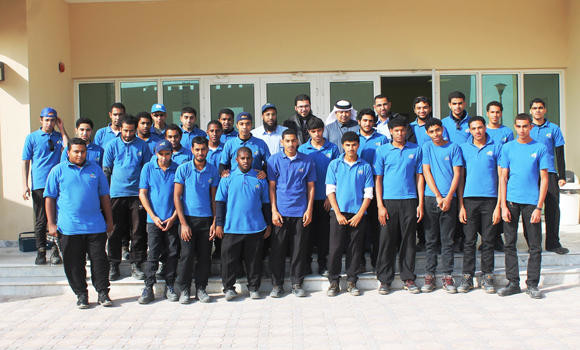Most Saudi graduates still prefer to work for government and would only move to the private sector if offered jobs by large firms in the banking or petrochemical industries, say human resources specialists here.
The situation has resulted in many private firms struggling to meet Nitaqat quotas. Saudis prefer jobs at private firms such as Saudi Aramco, Saudi Basic Industries Corporation or one of the large banks in the country, they say.
Hamza Khalil, a human resources manager at a Saudi food company, told Arab News that there is a high turnover of Saudi staff at his company.
“There are many Saudis who work for us temporarily until they receive higher offers from well known Saudi companies. Others are waiting for government jobs. We do not have permanent Saudi employees,” said Khalil.
“Two of our Saudi staffers resigned last month to take up jobs in the public sector,” he said. Saudis want to work in the private sector because they claim there is better job security and pay, even though the country’s labor laws protect them in the private sector too, he said.
There are jobs available for Saudis in the public sector. About 13 percent of public sector jobs in the Kingdom are vacant, according to an August 2013 report from the Ministerial Agency of Civil Affairs, which falls under the Ministry of Interior.
The agency report also stated that expatriates hold 79,000 jobs in the public sector.
The ministry estimated that various government departments and public firms approved over 1.15 million jobs in 2012, and filled 86.5 percent of these positions. There are currently 998,138 civil servants in the country, with 65.51 percent male and 34.49 percent female workers.
The number of foreign workers in government departments rose by five percent in 2012 compared to the previous year, the agency said, with 5,589 foreigners replaced by Saudis during the same year.
Government departments recruited 6,390 foreign workers in 2012, including 3,277 women, said the report.
The majority of civil servants, estimated at 45.85 percent, are in the education sector, followed by 28.8 percent in the general category, 14.45 percent in the health category and 5.53 percent working as part-timers.
“A lot of Saudi graduates prefer to be trained at private firms but they don’t want to continue working there. However, Saudis who studied abroad or who are suitably qualified prefer private petrochemical and oil companies,” said Saeed Abdul Ghani, who works as a chemical engineer for an oil company.
Saudi graduates still prefer government jobs
Saudi graduates still prefer government jobs










